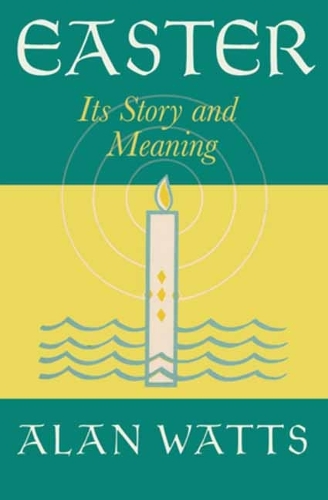
Easter: Its Story and Meaning
(Paperback)
Available Formats
Publishing Details
Easter: Its Story and Meaning
By (Author) Alan Watts
New World Library
New World Library
7th April 2023
United States
Classifications
Physical Properties
Paperback
192
Width 133mm, Height 203mm
Description
THE FORGOTTEN PAGAN ORIGINS OF CHRISTIANITY'S MOST EMBLEMATIC CELEBRATION
"Easter -- by whatever name it may be known -- is a theme common to almost every religion and every people."
-- Alan Watts
Along with Christmas, Easter Sunday is one of the two most popular celebrations on the Church calendar. For millions of believers around the world, it encapsulates the central message of Christianity. Yet Easter has become associated with a perplexing jumble of non-Biblical customs: colorful eggs, chocolate rabbits, evening bonfires, children's songs, mischievous games, and more. Philosopher Alan Watts proposes that these curiosities are vestiges of a tradition far older than Christianity.
In Easter: Its Story and Meaning, Watts goes in search of the lost origins of Easter, taking readers with him on a kaleidoscopic tour of history, anthropology, and myth. He begins on the scorching plains of Bronze Age Mesopotamia, wanders the marble temples of imperial Rome, enters the glittering cathedrals of medieval Europe, and eventually lands in modern America. In the course of the journey, Watts unravels the multilayered symbolism of Easter and places the holiday within the broader context of world religions. He also delves into several tantalizing historical enigmas, such as:
- Why is Christianity's most sacred holiday named after a pagan goddess
- Is Jesus Christ historically unique, or is he just another example of the "dying-and-rising god" archetype common in antiquity
- How was the date of Easter calculated by the patriarchs of the early Church
- Where did the tradition of the Easter egg come from (Could it be African)
The book closes on a lighthearted note, with a collection of weird and wonderful Easter folk traditions old and new. From beginning to end, Watts employs his keen intellect and vast erudition to uncover hidden connections between seemingly unrelated events. The result is a philosophical adventure that will enlighten readers of all religious backgrounds. Watts concludes that Easter is a universal celebration of nature's eternal cycle of life, death, and rebirth -- a celebration for all humanity.
Author Bio
Alan Watts (1915-1973) rose to fame in the 1960s as a charismatic interpreter of Eastern philosophies such as Taoism and Zen Buddhism, but he also spent part of his early career in the Episcopal priesthood. Born near London, Watts immigrated to the United States in his twenties, attended seminary school, and became a chaplain at Northwestern University in Illinois. After leaving the Church, he devoted himself to teaching, lecturing, and writing. During his lifetime, he wrote more than twenty books, including the bestseller The Wisdom of Insecurity.
